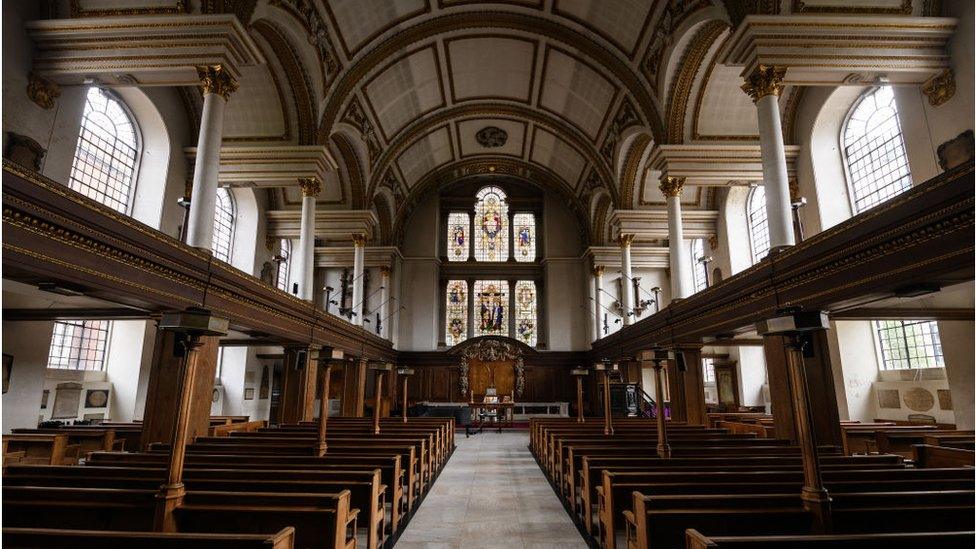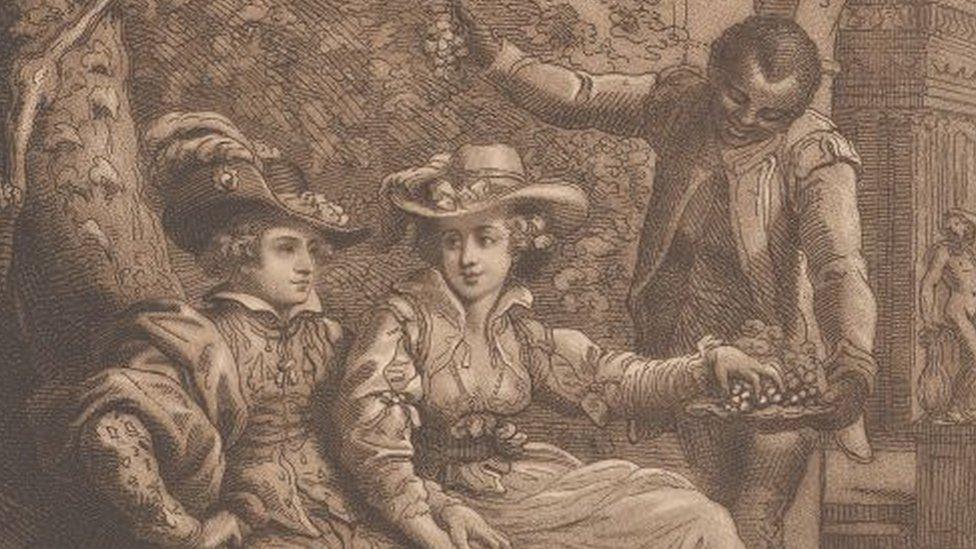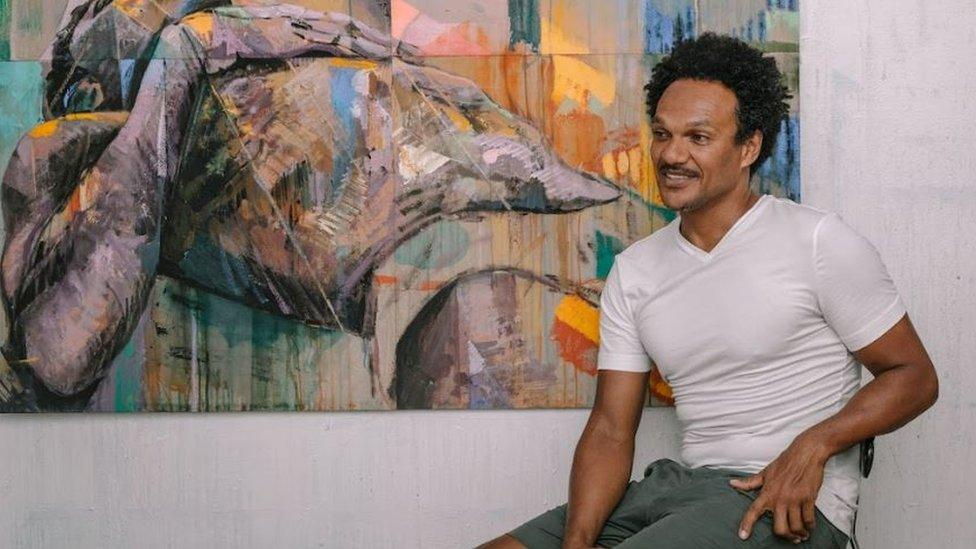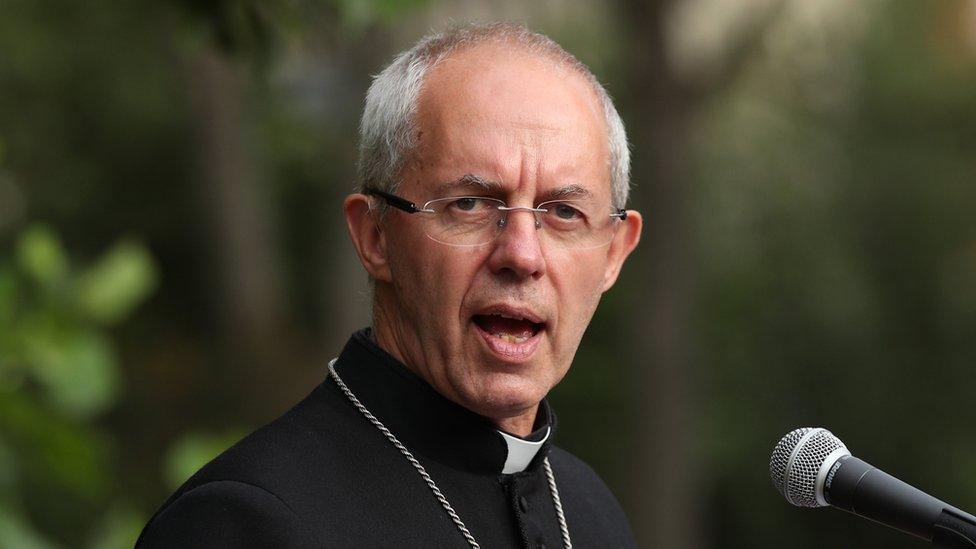Piccadilly: Church commemorates forgotten black history figure
- Published

Cugoano's baptism at St James's Church is the only verified date and place in his story
A central London church is dedicating a plaque to a "largely forgotten figure" in black British history on Sunday.
St James's Church, Piccadilly, is marking the 250th anniversary of the baptism of Quobna Ottobah Cugoano.
Cugoano, who was one of the most prominent abolitionists of the time, was baptised at the church, said the Diocese of London.
Dame Sarah Mullally DBE, Bishop of London, said "it is a joy to see him commemorated in this way".

Richard and Maria Cosway employed Cugoano as a servant in 1784
To mark the anniversary of Cugoano's baptism the year after he was freed from slavery, an artwork will also be installed in the entrance of the church in September.
Created by Trinidad-based artist Che Lovelace, it will be the first permanent art commission to commemorate Cugoano's life anywhere in the world, according to a spokesperson for the Diocese of London.
"Having the opportunity to be part of the legacy of Ottobah Cugoano is truly significant and meaningful," Mr Lovelace said.
Rector Lucy Winkett, of St James's Piccadilly, said that it is the church's "duty and honour to mark the 250th anniversary".

Che Lovelace has created an artwork that commemorates Cugoano's life
Cugoano's exact dates of birth and death are unknown. His baptism on 20 August 1773 at St James's is the only place and date that is verifiably part of his story, the diocese said.
In his 1787 book "Thoughts and Sentiments on the Evil of Slavery", he described being trafficked at 13 to work on a plantation in Grenada, before gaining his freedom in 1772.
The text, rooted in Cugoano's Christian faith, is considered one of the most radical of the era in its arguments, the diocese said.
At the beginning of the year, the Church of England and Church Commissioners published research into the Church's deep implication in the transatlantic chattel slavery, external.
"The Diocese of London is committed to having racial justice woven into every aspect of what we do, and we are focused on taking practical steps towards building communities and cultures that are inclusive and fair for all," Dame Sarah said.
"Our attempts to right this wrong will never be enough, but understanding and responding to our past can help us create a positive and lasting legacy to serve communities impacted by slavery."

Follow BBC London on Facebook, external, Twitter , externaland Instagram, external. Send your story ideas to hellobbclondon@bbc.co.uk, external
Related topics
- Published10 January 2023
